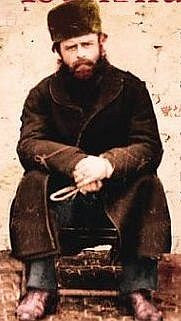Surely it is time for every right-thinking Englishman to petition the Government to outlaw this 'interweb' thing, as it is clearly responsible for spreading dangerous seditious nonsense, such as the following outpourings from someone who freely confesses that he has no formal training as an economist:
I have, for a long time, been pointing out that the UK is structurally bankrupt. Back in July I wrote the following:
As I have mentioned, government will need to either borrow more, which will destroy confidence in the UK economy, or will require massive cuts in state spending. If it is the former, then the result will be destruction of confidence in the UK government's ability to manage the finances of the UK and the UK economy. If it is the latter, then there will be a strong downward lever on the economy (at least in the short to medium term).
I have been giving this some thought, and I am coming to a conclusion that it is going to become increasingly difficult for the government to borrow at all. I have detailed elsewhere that the £GB will continue to fall in value. I have argued that depression is looming. The government deficit it going to balloon. This makes lending to the UK government a very, very high risk venture.
My question is this; Will anyone want to continue to lend to the UK government under such circumstances?
I think that the answer, in the coming months, will be 'no'. I am not sure at what point this will occur, but I would guess that the turning point will come in the next six months or so. It is at this point that the government will really fall to pieces. The reason will be that, in the near future, the UK will be calling on the International Monetary Fund. Quite simply, with the huge risks in the UK economy, I simply do not believe that it is creditworthy, and others are going to come to the same conclusion.
As a note, since that post, I have pointed out that the IMF may not be an option, on the basis of the question; who will be funding the IMF?
As the government sought to 'fix' the crisis through the banking bailout, and then chose to spend its way out of recession, it became ever more apparent that the overseas investors, who have been financing the defecit, would gag on such proligacy. I explained the nature of the problem in a previous post at the start of September, and will also quote this at some length:
The reason why confidence is so important is best explained through an analogy. The analogy is an 18th century aristocrat who is living beyond his means. He gambles, he entertains, and he has a wonderful time. All of the tradesmen extend to him long lines of credit, and he continues with his profligate lifestyle, all the time feeling that he is above the petty business of managing finance. After all, his family has been wealthy for generations, and it is his right to enjoy the good life. However, he is actually spending his family wealth, and the earnings from his estate are no longer covering the costs.
His creditors also know that his family have a long history of wealth, they see his fine house, they see his expensive furniture, his lavish lifestyle, and can not believe that he will not repay the credit that they are extending.
Then a rumour starts that he is in financial trouble. One or two of his creditors start to press for payment, and restrict his access to new credit. He is unable to make the payments. The word starts to go around that maybe he is not as solid a credit risk as everyone first thought. Creditors start to refuse to extend his credit further, and the aristocrat starts to realise that he has no money. The entertaining, the lavish clothes, all become beyond his means. He can no longer make repayments. His estate does not generate enough cash, and now that the credit has stopped, he can no longer afford anything at all. He is bankrupt.
The UK has long lived on such confidence but, like the aristocrat, it is a misplaced confidence. It is a confidence built upon an idea that wealth is a birthright. However, as the UK is about to learn, it is not a birthright, but something that requires effort and energy. You can only live so long on your inherited wealth before it is squandered away, and you can only live so long on credit before the creditors start to ask questions of your ability to make payments.
Don't let yourselves be fooled by the fact that most of things that he predicted, at the start of the summer, have actually come true.
The man is quite clearly deluded, and determined to bring this great nation of ours to its knees, with his poisonous drivel.
I don't need to tell you to avoid his blog, which is here, at all costs.
I know you won't let me down.


